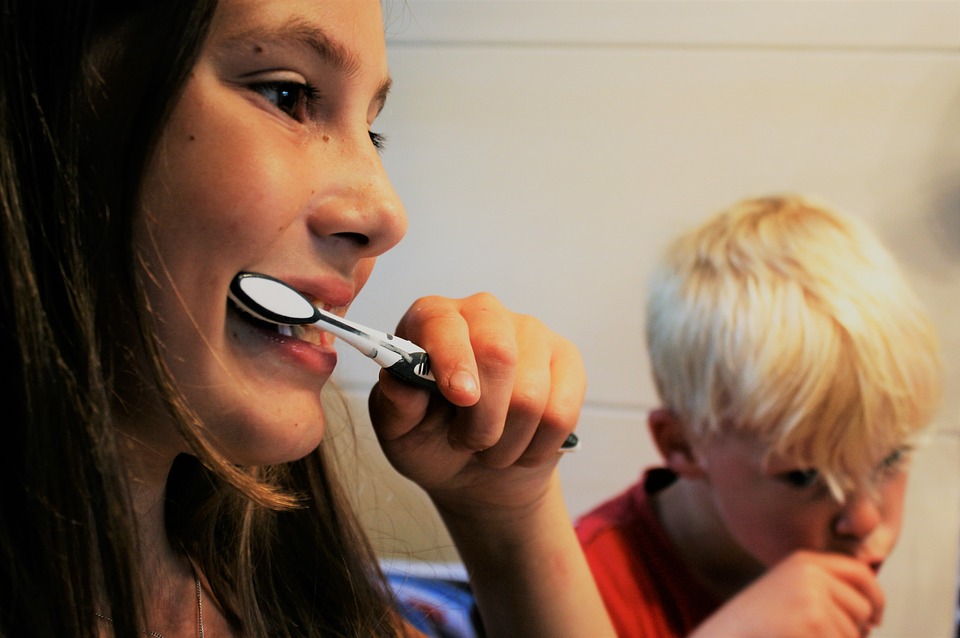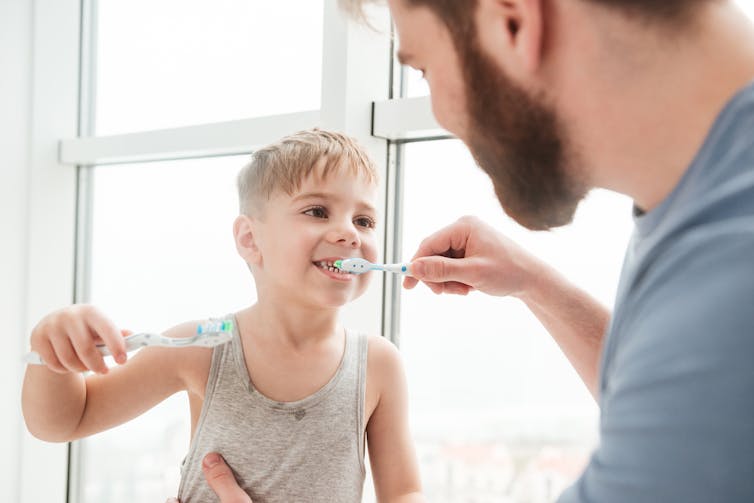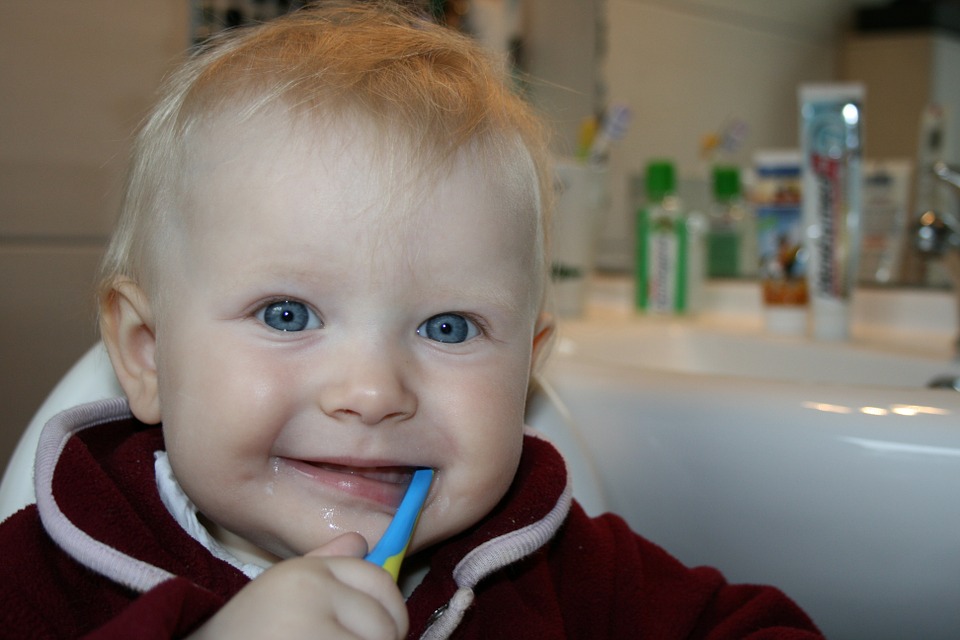
How to gently get your child to brush their teeth
When should you start encouraging dental hygiene?
One of the ways to ensure children brush their teeth, without resorting to bribes or punishments, is to start early. Dentists suggest brushing baby’s first teeth when they appear, even wiping gums, may help establish good dental hygiene early.
By starting early with dental care, it will become an established part of life and may cause fewer power struggles.

Does routine help?
Routine is said to be essential in children’s lives. Studies suggest routine can positively impact on children habituating positive behaviours because of the repeated exposure.
Families who provide a loving and consistent structure are more likely to have children who brush their teeth. Studies suggest taking a gamification approach creates an environment of fun around the routine of toothbrushing, creating better long-term oral hygiene.
Common areas that cause problems with brushing
One common issue is toothpaste. Children report not liking the taste or it making them feel funny. If your child won’t use toothpaste, but is otherwise OK with brushing, dentists recommend making the paste optional.
There are also many other flavours on the market besides mint, which some children may prefer to use and which may reduce the issue with refusal to brush their teeth.
But changing the toothpaste may not be enough. Studies suggest children’s refusal to brush teeth can create major family dramas, and parents report tooth brushing as a major site of power struggles. But effective behaviour management leads to children with fewer caries and healthy mouths.
Practical measures
When children refuse to brush their teeth, we can employ respectful methods to encourage them to develop good dental hygiene. Dentists report positive parent-child interactions and the use of positive discipline can result in good teeth brushing behaviour.
One example is having a special song that is sung only when the child allows their parent to brush their teeth.
Another strategy is reading stories about teeth brushing so children understand the importance of good dental hygiene.
Some suggest allowing your child to carefully brush your teeth, and then you can have a turn at theirs. This approach gives the child power and allows them to explore their feelings about having their teeth brushed.
Making it a game is another strategy. Perhaps you and your child can have a competition to see who can make the most spit at the end or whether you can count all your teeth as you go. Another option is to let the child start by brushing their toy’s teeth.
Having our children learn to brush their teeth in a calm and gentle way, without threats or rewards, is essential, with one dentist suggesting dental phobia is a problem when children have negative experiences at the dentist because of early childhood caries. Dental phobia is a fear of the dentist that prevents people with dental issues seeking help from a dentist.
These strategies can help children who are resistant to brushing to engage positively with dental hygiene. This approach takes longer than prying their mouths open and forcing them to have their teeth brushed, because you’re asking your child to engage with something they’re resisting. But the value is they will habituate good dental hygiene practices and you can end power struggles over teeth brushing.

If you are looking for a child friendly dentist on the Gold Coast TFI dentistry at Labrador are the people to see. At TFI Dentistry your children have the option of being treated by a real tooth fairy. Your children can come and see the tooth fairy and experience dentistry the way it should be – caring, gentle and fun. They also provide tooth fairy certificates for your child to keep. They also provide the Child Dental Benefits Schedule for families that are eligible. The benefits of this scheme include $1000 of basic dental services per child over two consecutive years. You can contact TFI dentistry on (07) 5528 8222.
Article sourced from The Conversation


